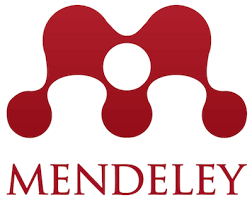ANALISIS EKONOMI POLITIK MEDIA MELALUI PERSPEKTIF KOMODIFIKASI BIG THREE INDUSTRI LABEL REKAMAN GLOBAL
Sari
Perkembangan industri label rekaman sejak tahun 1800-an telah menciptakan standarisasi dalam musik populer dunia dan meningkatkan konsentrasi perusahaan. Perkembangan industri musik jenis ini tidak berdampak langsung terhadap budaya lokal atau dianggap imperialisme budaya. Tujuan penelitian ini adalah untuk mengkaji praktik dominasi Universal Music Group, Warner Music Group, dan Sony Music Entertainment atau yang dikenal the big three di industri label rekaman. Adapun penelitian ini dianalisis dengan menggunakan teori Ekonomi Politik Media serta Komodifikasi. Penelitian ini merupakan penelitian kualitatif dengan metode deskriptif secara utuh terkait dominasi big three di industri label rekaman global. Penelitian menunjukkan bahwa Big three, sebagai perusahaan label rekaman global, memiliki kapasitas untuk mempengaruhi sistem produksi dan distribusi yang berupaya mengubah nilai estetika musik menjadi nilai ekonomi atau nilai hanya untuk tujuan komersial. Selain komodifikasi konten, big three juga mengkomodifikasi karyawan dan musisi.
Kata Kunci
Teks Lengkap:
PDFReferensi
Albarran, A. B. (2002). Media economics: Understanding markets, industries and concepts. Understanding Markets, Industries and Concepts.
Arianto, A. (2011). Ekonomi Politik Lembaga Komunikasi. Jurnal Ilmu Komunikasi, 1(02), 191-201.
Ayun, P. Q. (2015). Sensualitas dan Tubuh Perempuan dalam Film-film Horor di Indonesia (Kajian Ekonomi Politik Media). JURNAL SIMBOLIKA: Research and Learning in Communication Study (E-Journal), 1(1).
Barnet, & B. (2002). Controversies of the music industry. Choice Reviews Online, 39(09). https://doi.org/10.5860/choice.39-5101
Cohen, S. (2011). Folk devils and moral panics: The creation of the Mods and Rockers. In Folk Devils and Moral Panics: The Creation of the Mods and Rockers. https://doi.org/10.4324/9780203828250
Denzin, N. K. (1978). The research act: A theoretical orientation to sociological methods. New York: McGraw-Hill. Sage Publications.
Dominick, J. R. (2005). The Dynamics Of Mass Communications : Media in The Digital Age. McGraw-Hill.
English, S. (2000). Vivendi buys Seagram in $32bn deal. https://www.telegraph.co.uk/finance/4455117/Vivendi-buys-Seagram-in-32bn-deal.html
Erickson, A. (2017). So You Want to Join the Music Industry: Here’s the Info You Need. Atlantic Publishing Company.
Fabrikant, G. & Ross, A. (2000). A New Entertainment Giant: The Merger; French Company Agrees To A Deal To Buy Seagram. https://www.nytimes.com/2000/06/20/business/new-entertainment-giant-merger-french-company-agrees-deal-buy-seagram.html.
Gouldjune, J. (1966). Lieberson Heads New C.B.S. Group; Put in Charge of Activities Outside Broadcasting. https://www.nytimes.com/1966/06/10/archives/lieberson-heads-new-cbs-group-put-in-charge-of-activities-outside.html
Hall, S. (2013). Representation: Cultural Represenation and Signifying Practices. In Representation.
Hutchison, T. (2012). Record Label Marketing. In Record Label Marketing. https://doi.org/10.4324/9780240813936
Ibrahim, I. S., & Akhmad, B. A. (2014). Komunikasi dan Komodifikasi: Mengkaji Media dan Budaya dalam Dinamika. In Pustaka Obor (Vol. 1).
Lynch, J. (2018). Musicians only got 12% of the $43 billion the music industry generated in 2017, and it mostly came from touring. https://www.businessinsider.sg/musicians-received-12-percent-43-billion-generated-by-music-industry-study-2018-8/?r=US&IR=T
Malloy, D. (2015). Dialectic and Enlightenment: The Concept of Enlightenment in Hegel and Horkheimer- Adorno. Auslegung: A Journal of Philosophy. https://doi.org/10.17161/ajp.1808.9537
Malt, A. (2016). Warner Music Group does deals with Times Music and PT Indo Semar Sakti. http://www.completemusicupdate.com/article/warner-music-group-does-deals-with-times-music-and-pt-indo-semar-sakti/
McQuail, D. (2001). McQuail’s Mass Communication Theory, edisi ke-4. London: Sage.
McQuail, D. (2010). The Rise of Mass Media. In McQuail’s Mass Communication Theory.
Mosco, V. (2009). The political economy of communication. In The Political Economy of Communication. https://doi.org/10.4135/9781446279946
Murdock, G., & Golding, P. (1989). Information Poverty and Political Inequality: Citizenship in the Age of Privatized Communications. Journal of Communication, 39(3). https://doi.org/10.1111/j.1460-2466.1989.tb01051.x
Myer, L., & Kleck, C. (2007). From independent to corporate: A political economic analysis of rap billboard Toppers. Popular Music and Society, 30(2). https://doi.org/10.1080/03007760701267649
Resmadi, I. (2008). Music Records Indie Label. Mizan Media Utama.
Strauss, N. (1998). A Major Merger Shakes Up the World of Rock. Diperoleh 11 November 2018. https://www.nytimes.com/1998/12/21/arts/a-major-merger-shakes-up-the-world-of-rock.html
Subandi, Z. E., & Sadono, T. P. (2018). KOMODIFIKASI, SPASIALISASI, DAN STRUKTURASI DALAM MEDIA BARU DI INDONESIA (Ekonomi Politik Komunikasi Vincent Mosco Pada Line Webtoon). National Conference of Creative Industry. https://doi.org/10.30813/ncci.v0i0.1297
Sujoko Efferin. (2015). Akuntansi, Spritualitas dan Kearifan Lokal Beberapa Agenda Penelitian Kritis. Jurnal Akuntansi Multiparadigma. https://doi.org/http://dx.doi.org/10.18202/jamal.2015.12.6037
Wenerda, I. (2015). Ekonomi Politik Vincent Moscow oleh Media Online Entertainment kapanlagi. com™. CHANNEL Jurnal Komunikasi Vol.3(1).
Wibisono, N. (2017). Nasib Label Rekaman yang Makin Terpinggirkan. Tirto.Id. https://tirto.id/nasib-label-rekaman-yang-makin-terpinggirkan-ckVm
DOI: https://doi.org/10.31294/kom.v9i1.12627
##submission.license.cc.by-nc-sa4.footer##
| Index by: | ||
       | ||
| E-ISSN: 2549-3299 | ||
  | ||
Dipublikasikan oleh LPPM Universitas Bina Sarana InformatikaJl. Kramat Raya No.98, Kwitang, Kec. Senen, Kota Jakarta Pusat, DKI Jakarta 10450 |






